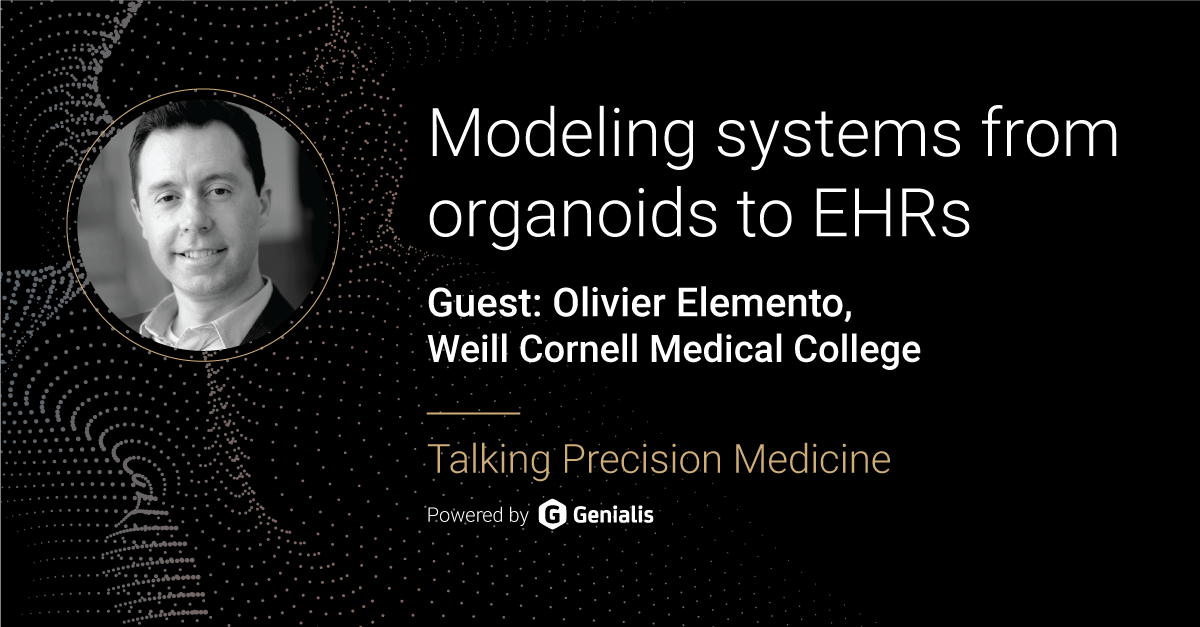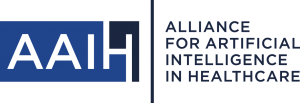Welcome to the Talking Precision Medicine podcast. In this series, we sit down with experts on the application of AI and big data analytics in the drug discovery space. Our guests are innovators, business decision makers and thought leaders at the intersection of data and therapeutics. We discuss the promise, practice, challenges, and myths of AI in precision medicine. This show is brought to you by Genialis, and Rafael, our CEO, is your host.
Genialis is focused on data integration and predictive modeling of disease biology… to help accelerate the discovery and de-risk the development of novel therapeutics.
In this episode, we speak with Olivier Elemento. Olivier is the Director of the Englander Institute for Precision Medicine, as well as Associate Director of the Institute for Computational Biomedicine, both at Weill Cornell Medicine. He is also co-founder of OneThree Biotech. Olivier is a practitioner par excellence, in applying advanced analytics to large genomic and patient datasets. His team developed the first whole exome sequencing test for oncology to be approved by the State of New York.
Episode highlights:
- We still live in the world of silos, where it is hard to combine information from multiple centers/hospitals that would allow us to get to the samples size where we can make robust associations. For me, this is one of the first things we all need to work on.
- We should apply what we learned with cancer research to other diseases. Like the same concept with organoids, ex-vivo models. For example, you get a skin cell, you make induced Pluripotent Stem (iPS) cells and then you can differentiate iPS cells into all kinds of different tissues. You can make like mini heart, mini brain based on iPS cells, on which you can then try to change specific phenotypes, combining genomics data with these ex-vivo models.
- We use a resource created at Weill Cornell called the Precision Medicine Knowledgebase, available to the public. The information that goes into the database has to be validated by pathologists because they know what information should be there, how to describe it, what language to use in interpretations.
- We are trying to get patients to sign a consent to enable us to do research on the clinical samples. That allows us to pilot things like RNA-seq. And we see, even though we can’t report results from RNA-seq to the clinicians yet, there is so much actionable information in RNA-seq.
- The goal of organoids and 3D cultures is really to essentially create copies of a patient’s tumor in vitro, ex-vivo. That allows us to test multiple drugs and multiple drug combinations on the tumors from individual patients.


